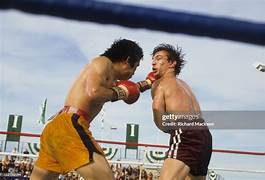On September 10, 1970, the United States implemented new policies to enforce import duties, marking a significant development in the country's trade regulations. These measures were put in place to protect domestic industries and address concerns about the impact of foreign competition on the American economy.
During the 1970s, the United States faced economic challenges, including rising unemployment rates and a trade deficit. To address these issues, the government sought to protect American industries from foreign competition by imposing import duties or tariffs on certain goods.
Import duties are taxes imposed on goods imported into a country, making them more expensive and less competitive in the domestic market. By enforcing import duties, the United States aimed to encourage consumers to purchase goods produced domestically, supporting local industries and preserving jobs.
The implementation of import duties on September 10, 1970, signaled a shift in U.S. trade policy. It reflected a growing concern about the impact of imports on American industries, particularly in sectors such as manufacturing and textiles.
The enforcement of import duties had several effects on the U.S. economy. On one hand, it provided protection to domestic industries, allowing them to compete more effectively with foreign producers. This protectionism was intended to safeguard American jobs and prevent the outsourcing of manufacturing and production to other countries.
However, the imposition of import duties also had broader implications. It increased the cost of imported goods for American consumers, potentially leading to higher prices and reduced consumer purchasing power. Additionally, it raised concerns about retaliatory measures from other countries, potentially leading to trade disputes and disruptions in international trade relations.
The enforcement of import duties in 1970 was not an isolated event, but rather part of a larger trend in U.S. trade policy. Throughout the 1970s and subsequent decades, the United States continued to implement various trade protection measures to shield domestic industries from foreign competition.
Over time, the specific policies and strategies related to import duties have evolved. The United States has engaged in negotiations and trade agreements with other countries to address trade imbalances and promote fair competition. Tariff rates have fluctuated, reflecting changing economic circumstances and political considerations.
In recent years, trade tensions have once again come to the forefront of global discussions. The enforcement of import duties, particularly between the United States and China, has been a significant point of contention. These actions have sparked debates about the potential impact on global trade, economic growth, and consumer welfare.
September 10, 1970, marked an important milestone in U.S. trade policy with the enforcement of import duties. It represented a deliberate effort to protect domestic industries and address economic challenges faced by the United States. The impact of these policies, both positive and negative, continues to shape discussions on trade and globalization today.






